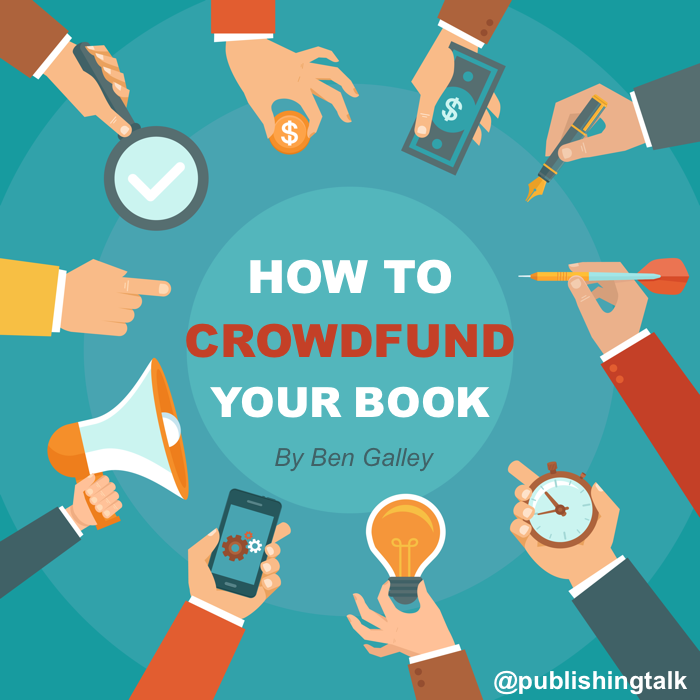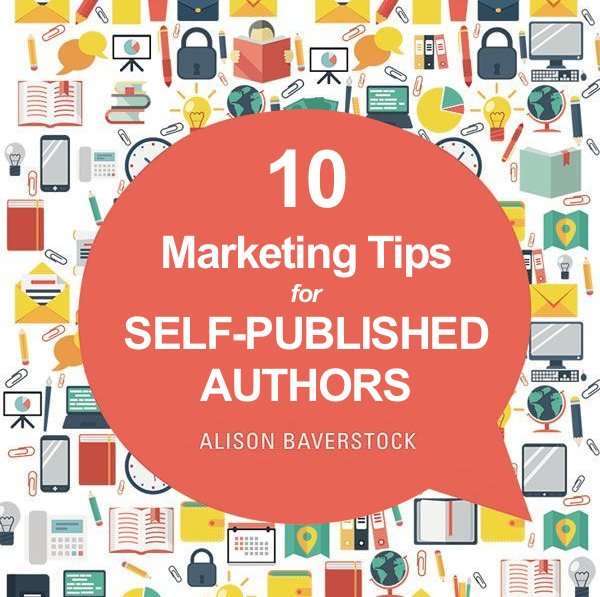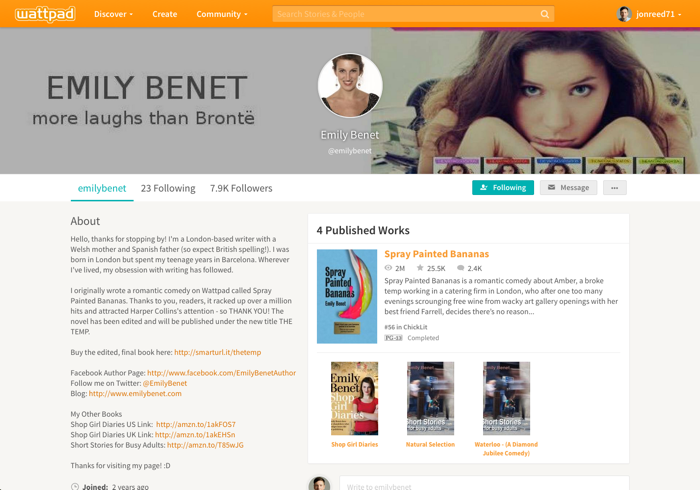How to crowdfund your book

Indie bestseller and self-publishing expert Ben Galley shares his top tips for crowdfunding your book.
Looking to self-publish but tight on funds? Want to build a fanbase before you’ve even released a book? Or, perhaps you want to fund a special project like a graphic novel or audiobook? If that’s you, then crowdfunding might just be your new best friend.
Crowdfunding is a great way of raising funds using the power of the crowd, acting almost like an advance that you can channel in to publishing costs or new projects. Better still, that crowd can become your loyal fans as well as your investors, meaning you’ve got contacts already ready and waiting before you’re even on the shelves.
Q. So what exactly is crowdfunding?
A. Crowdfunding is a method of fundraising whereby you can fund projects, startups, and ideas using a crowd – an online community that pools resources such as skills, advice, or in the case of crowdfunding, funds! In essence, it’s a way of bringing together people who need to raise money with people who want to donate it, and invest in backing new, interesting projects.
Q. How does it normally work?
A. Generally speaking, you post a project on a crowdfunding platform outlining your goals, plans and why people should back you. Then, by the strength of your idea, your rewards and your marketing, people will back your project. Normally you have to raise a certain amount of money within a certain time limit. If you’re successful in that time, the funds are transferred to you and you can get cracking on your project.
Q. What’s in it for the backers? Why would somebody crowdfund me?
A. On most crowdfunding platforms, you can offer rewards to your backers in return for investment. Rewards can vary from project to project, but usually include a copy of the finished product, or something unique and exclusive to the project itself, like merchandise or signed copies.
People who support a crowdfunding project also get to help bring it to life, and get an inside look at the creative process. In short, they get to be involved, and that’s a great feeling on its own.
Q. Can authors use crowdfunding?
A. Yes indeed. Crowdfunding offers a unique opportunity for independent authors, in the way that you can raise money ahead of publishing a book, funding your time and your publishing process ahead of release. You can also use it to gather fans before your book is out, as well as use it testing out the commercial potential of ideas for new books.
Q. How much can I raise?
A. The amount will vary from project to project, and whether you reach it depends on what you’re trying to achieve, the strength of your idea, and also your outreach and marketing (see below). It’s not uncommon to see successful book projects raising between £1,000 and £5,000.
Q. Does crowdfunding take a lot of work?
A. If you want your project to be successful, then yes. Crowdfunding should be given us much work as the actual publishing of the book itself. The success of your project doesn’t just depend on your idea, your concept, and your passion, but also on your ability to market and drive people to your project.
Successfully funding a project requires a lot of thought, time and effort. You need to be able to reach out to people n the right places, using online communities and social media to drive traffic and interest. A couple of tweets here and there doesn’t quite cut the mustard. You’ll need to be marketing constantly before and during the project.
Q. Does it cost money to crowdfund?
A. Usually, no. The main crowdfunding platforms at our disposal simply take a percentage of the money raised. And, if you aren’t successful, there are usually no fees at all.
Q. Do I have to give away any rights?
A. Not at all. Crowdfunding platforms allow you to keep 100% ownership of the finished product, though you do have a responsibility to use the funds in an appropriate way, and of course deliver a product at the end of it.
Q. What can I crowdfund?
A. The world of crowdfunding is vast, weird and wonderful, but is centred on the completion of a goal and the creation of a product. This could be a film, a game, a gadget, an album and, of course, a book. The most successful projects do tend to have an X factor, an element of cool about them, or be clever, so try to give your project a little twist, and describe it as compellingly as possible.
Q. Where can I start crowdfunding?
A. There are a few major crowdfunding platforms that you can use. Here’s a breakdown of their details:
Kickstarter has raised over $1 billion from over 7 million projects since its launch in 2009, funding more than 77,000 creative projects. 44% of Kickstarter projects reach their goals, and millions of people visit Kickstarter every week. 6703 publishing projects have been successfully published on Kickstarter.
- Great organic traffic
- Easy-to-use dashboard, both for during and after your projects
- Easy to contact if you have a problem
- All projects must go through an approval process
- Fees: 5% of the funds raised, plus payment processing fees of 3-5%.
- Website: www.kickstarter.com
Indiegogo was launched in 2008, and has a wider remit than Kickstarter, allowing people to back creative projects as well as charitable causes and startups. From aggregated data their overall success rate is 34%. Indiegogo will also pay out on partially-funded projects, called flexible funding, but this incurs a fee of 9%.
- Projects don’t have to be approved by Indiegogo
- Varied and wide project types
- You can offer multiple or bulk quantities of a reward
- Campaigns are very easy to launch
- Fees: 4% (or 9% for part-funded projects), plus payment processing fees of 3-5%
- Website: www.indiegogo.com
Pubslush is a niche crowdfunding platform that focuses on the literary world, providing services to authors, publishers, and literary projects. Projects can be launched with a top goal and a minimum goal, giving you flexible funding. All projects must raise a minimum of $500. You can also offer rewards, and the dashboard is very similar to Kickstarter’s.
- Easy-to-use dashboard, both for during and after your projects
- Campaigns can be approved within 24 hours
- Post-project benefits include a sales page and in-house literary agent
- More specific audience thanks to literary focus
- Fees: 4%, plus a 3.5% processing fee
- Website: www.pubslush.com
Have you used crowdfunding to publish a book? Share your experience in the comments below.




Just to point out that the domain pubslush.com is no longer active and is up for sale
I’ve crowdfunded a book trailer for my science-fiction novel, ‘The Methuselah Paradox’ – like Taneeka, I found it extremely rewarding and educational, and will definitely crowdfund future projects. I used Patreon (which I discovered is more for ongoing patronage rather than one-off projects) and GoFundMe. An IndieGoGo campaign didn’t raise a penny, but in the end I didn’t need it!
Great tips indeed to exploration. I hope to try these for my next project
Unbound is another niche site for book crowdfunding projects.
Pingback: Self-Publishing News
Pingback: Hope For the Little Guy: How Crowdfunding Helps Out the New Author | PUB401
In July 2014, I raised $525 through Kickstarter for my book, Broccoli Chronicles. It was a very rewarding and educational experience. I recommend that more authors try crowdfunding!